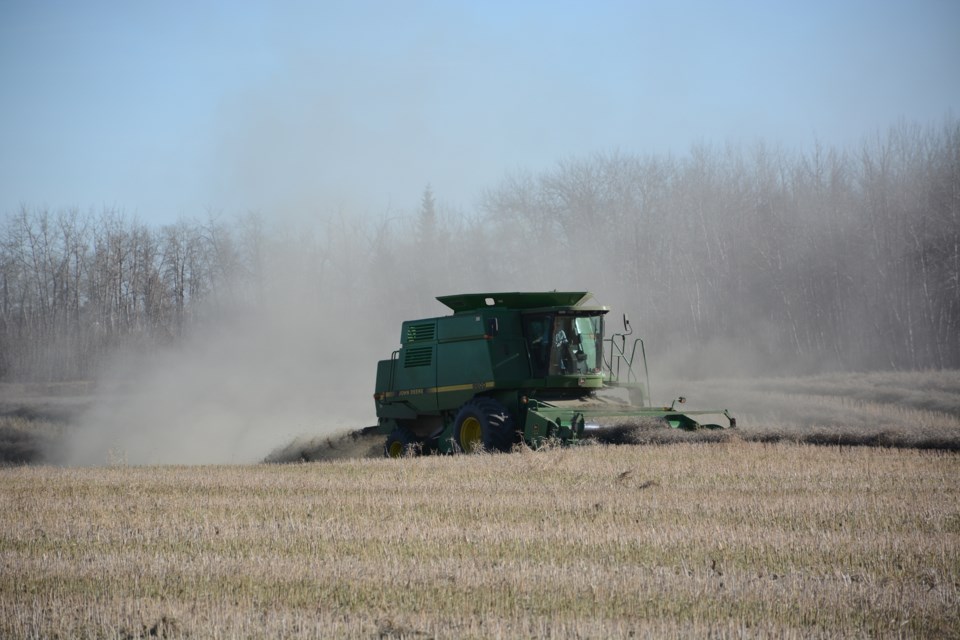ATHABASCA/BARRHEAD/WESTLOCK - The agriculture industry in Canada is being faced with a series of overlapping challenges arising from warm spring weather, an unprecedented transport backlog, disruptions in the rail network and new border restrictions meant to contain the spread of COVID-19.
That’s according to a lengthy summation of the issues facing agriculture posted online by the Alberta Barley and Alberta Wheat Commissions’ management team last week.
“As you know, the COVID-19 situation is changing by the moment. As we continue to work with a wide range of value chain partners to assess the evolving landscape related to agriculture, we are committed to keeping you informed on a regular basis,” the management team states in its intro.
First, the agriculture industry is having to contend with significant discounts on price arising from the “harvest from hell” of 2019.
For instance, wheat prices have seen an approximate six per cent drop in prices between the highs of January and lows of March. While the devaluing of the Canadian dollar makes Canadian wheat exports more attractive internationally, wheat prices are trending lower as trade uncertainty impacts all global markets.
Grain prices are relatively stable, which is likely to the fact that grain sales tend to occur roughly eight months before the grain is loaded on ships.
However, the grains sector has been severely impacted by the recent disruptions to the rail network, as well as a backlog of vessels at ports in B.C. that are waiting to receive shipments. These transportation challenges mean the opportunity has been lost to make sales into higher-valued markets.
“Until the backlog of vessels is resolved, additional costs are being incurred from shipping delays that will be passed on to farmers through lower grain prices,” the team writes.
It is repeatedly noted throughout the summary that the Port of Vancouver has confirmed they intend to keep operations going as long as grain exporters are moving shipments via rail.
Next, the industry may have to grapple with an early spring thaw, which would result in early road bans being imposed in some regions. These restrictions would further delay the delivery of grain.
As well, the spread of COVID-19 has resulted in reports of millers and processors in importing countries shutting down.
“It is certain that trade will be implicated despite all levels of governments’ intentions to the contrary,” the team writes.
Farmers may also face reduced access to the parts they need for equipment repairs, such purchasing these parts generally requires face-to-face interactions. The ability to hire temporary foreign workers will also be reduced to the numerous travel bans being implemented by various countries.
“Groups who have a high dependency on TFW are working with government directly regarding labour concerns,” the team states.
Not all is doom and gloom, however. Fertilizer Canada has indicated the industry has coped well in the face of rail disruptions and there are normal supplies of fertilizer positioned across the country.
The $82 billion aid package announced by the Government of Canada on March 18 also apparently includes support for farmers through Farm Credit Canada (FCC). The commissions are working on getting further details about that aid.
While there is plenty of uncertainty and risk, “there is some optimism with how agriculture might ‘weather the storm’ so long as future policy is mindful of the potential (and unintentional) consequences to the agriculture and agri-food sector,” the team writes.
“Government needs to ensure that their policy and program decisions in the coming days are mindful of the implications on the agriculture sector as a matter of priority next to the health of Canadians and availability of essential goods.”


